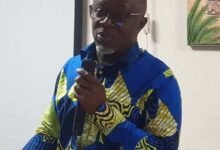
The Institute of Statistical, Social and Economic Research (ISSER) of the University of Ghana, predicts brighter future for Ghana’s economy in post-COVID-19 era, despite the challenges, Professor Peter Quartey, Director of the institute, has revealed.
That, he said, was dependent on government continuing with prudent measures put in place to enhance economic growth.
“Yes, the economy is growing in terms of Gross Domestic Product (GDP) growth but at the same time we face some challenges. Inflation, exchange rate and unemployment, among others are going up,” he said.
Though it was a global trend, he said, the government had to put in policies that would cushion Ghanaians against this external and internal shocks.
He said “Ghana is among the world fastest growing economy and I believe that if we manage our prospects well we can go far as a nation.”
Prof.Quartey was speaking during a stakeholder engagement organised by ISSER in collaboration with the Faculty of Social Sciences Education of the University of Education, Winneba (UEW) at Winneba.
The engagement was on the topic:“The State of Ghanaian Economy Report and Ghana’s Social Development Outlook.”
It was to discuss Ghana’s economy and get fresh and tap new ideas to strengthen the economy.
Prof. Quartey stated that, the nation’s GDP was growing steadily after COVID-19 but there were more things to be done to reduce the economic-related hardships among the large section of Ghanaians.
“The Government should pull breaks on Euro-Bond market and intensify revenue mobilisation in the country such as introduction of E-VAT and E-Poverty rate among others,” he said.
Additionally, he said “It can also reduce the E-levy tax to widen the tax net, saying, “As at now, though E-Levy tax bill has been passed, there is much more to be done to enhance revenue mobilisation.”
On the E-Levy, Prof. Quartey noted that the public education on it was poorly done.
“ISSER has suggested to government to take a second look at the various tax exemptions that is draining the country’s coffers and also reintroduce the tollbooths to generate income,” he said.
He further said “We are also much more concerned about the inability of Metropolitan, Municipal and District Assemblies to mobilise resources from property rates but always depends on the Central Government for Common Fund before embarking on developmental projects.”
Touching on the review of Ghana Social Development Outlook, Rev. Professor AddobeaYaaOwusu, a leading member of ISSER indicated that the government had successfully managed the COVID-19 situation in the country.
She also applauded the government for progress in water and sanitation, especially through Toilet For All policy in some selected Communities in Greater Accra, Central, Volta and other regions thus reducing environmental related diseases.
She noted that ISSER was, however, not happy when it comes to Water For All policy, explaining that, nearly three million people lack potable drinking water.
“On governance, our report state that government performed below average on the corruption index meaning the fight against corruption is getting out of hand and we must do something about it as early as possible,” she said.
She said, despite the fact that there were signs of progress in education, health, energy, agriculture and other sectors of the economy, there was the need for the government to improve in those areas.
The Pro-Vice Chancellor of the University of Education, Winneba, Professor Andy Ofori- Birikorang, who chaired the occasion lauded ISSER for the thought provoking presentation on the National Economy.
He encouraged Government to tackle the issue of unemployment situation in the country because it was gradually becoming a security threat to the citizenry.
Present were the Omanhene of the Effutu Traditional Area, NeenyiGhartey VII, Head of URO-UEW, Dr Obaapanyin Adu Oforiwa, Head of Social Division of ISSER, Dr Martha Awo and the Municipal Chief Executive for Effutu, Alhaji Zubairu Kassim.
FROM DAVID O. YARBOI-TETTEH, WINNEBA








